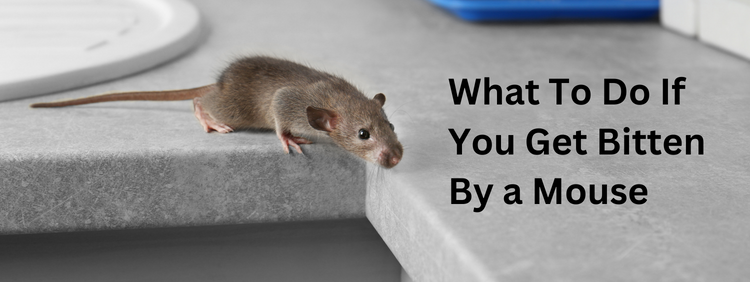Burlington Pest Removal: What To Do If You Get Bitten By a Mouse?

Don’t be fooled by a mouse’s size and appearance; it may be small, but it is capable of biting in self-defence if it feels threatened. Mice are not aggressive creatures and usually do not bite unless handled or provoked. Nevertheless, there have been rare reports of mice biting humans with little or no provocation. This, along with the extensive property damage that an infestation can cause, is why professional mice removal service is so important if you think rodent pests are present in your home.
Due to the fact that mice bites can be dangerous, here is how to recognize them, what to do after the bite occurs and how Burlington pest removal can help protect you.
What Are the Risks Associated With a Mouse Bite?
Mice can carry several diseases that can spread to humans. Pathogens may be present in the mouse’s saliva. If a mouse bites you, the saliva gets into your bloodstream or tissues. The skin is the body’s primary defence against infection, but once pathogens make it past that barrier, it is easier for them to cause you to become sick. Allergic reactions to mouse bites are rare but also possible.
Mouse bites can spread viral infections, such as lymphocytic choriomeningitis and hantavirus pulmonary syndrome. Each of these conditions can be dangerous and potentially life-threatening. Lymphocytic choriomeningitis can attack the brain and spinal cord, while hantavirus affects the lungs.
Rat-bite fever is an example of a bacterial infection that can spread to humans via mouse bite. It typically causes symptoms of muscle pain, headache, fever, and vomiting; rash and joint swelling are also possible. Left untreated, rat-bite fever is fatal in about 10% of cases. Fortunately, it is easy to cure with antibiotics if administered promptly.
Fortunately, one thing that you most likely don’t have to worry about from a mouse bite is rabies. Theoretically, mice can carry rabies because they are mammals, but because they are so small, they are more likely to die from the bite of a larger animal than survive to contract rabies.
What Does a Mouse Bite Look and Feel Like?
You may feel a sharp pinching sensation if a mouse bites you. Their front teeth are strong enough to break the skin if they bite you hard enough, which could cause bleeding. You typically see a single puncture wound from a mouse bite.
What Should You Do if a Mouse Bites You?
The first thing you should do if a mouse bites you is to use soap and warm water to clean the wound. If you act quickly enough, this may prevent pathogens from getting into your body and making you sick. Once the wound is clean, you should use a fresh towel to carefully dry it off. Then you can bandage it after treating it with an antibiotic cream.
The next step is to make an appointment to see your doctor. A mouse bite isn’t an emergency, so you don’t need immediate medical attention, but you should call for an appointment promptly and try to take the soonest one available. The wound itself may not be too serious, but your doctor can assess your risk of developing a dangerous infection and recommend any appropriate preventive treatments. For example, your doctor may prescribe you oral antibiotics to prevent rat-bite fever or another bacterial infection.
These same steps apply if you receive a scratch from a mouse that breaks the skin. Mice groom their paws with their mouths, and residual saliva on their claws may introduce pathogens into your body.
Why Should You Trust Truly Nolen’s Mice Removal Service?
With our Four Seasons approach, we learn about how different seasons bring about behavioural changes in pests and use that knowledge to our advantage and yours. Our rodent removal process includes both trapping them and sealing entry points so they can’t get back in. Learn more about pest control in Burlington from Truly Nolen.